‘My life is a ticking time bomb – I worry about running out of days to make change’
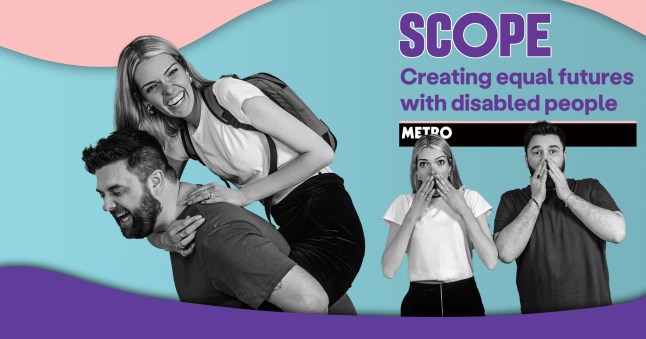

‘I have a degenerative condition that is going to take my life,’ Celia Chartres-Aris tells Metro matter-of-factly.
‘It could be tomorrow, it could be in two weeks, it could be in a couple of years. The only thing that motivates me is leaving the world a better place than when I came into it.
‘I worry about running out of time, and that’s probably why I work way too much. I want to get everything done because I know I am on a ticking time bomb.’
27-year-old Celia was born with Loeys-Dietz syndrome, which means she lives with multiple organ failure and is unable to eat or drink, so she gets all her nutrients through transfusion. She knows her time is limited, so one person who is helping her make the world a better place is her best friend, Jamie Shields.
The pair met three years ago at an awards ceremony to celebrate each’s work championing diversity in 2022 and were instantly drawn to each other.
‘The first time we spoke, it felt like I’d been missing a part of myself before. We became very fast friends,’ Celia recalls with a smile. ‘We always say we’re platonic soulmates.
‘We don’t need to use words to explain how we feel. If I’m not doing well, and the nature of my condition is that I’m ill all the time, I don’t ever have to justify myself or apologise to him.’
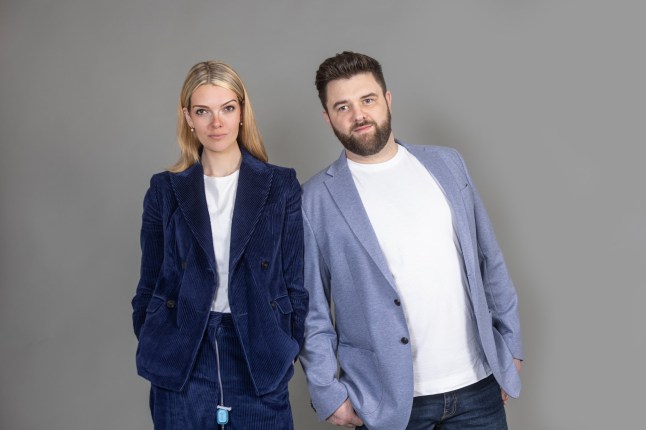
Jamie, 34, who has Autism, ADHD and is registered blind due to his eye condition Ocular Albinism with Nystagmus, adds: ‘When you’re disabled, so many people go for this positive affirmation where it’s like, “It’s so amazing to be disabled every day, and look at how much I’ve overcome.”
‘In one of our first conversations, the penny dropped that I could be vulnerable and say what I feel. Sometimes being disabled is not okay. Sometimes it’s s**t.’
‘People might be upset by this, but I don’t like being a disabled person. It’s really f*****g difficult. Nearly every single day, something happens. I mourn for a life I would have had if I weren’t disabled,’ echoes Celia. ‘That doesn’t mean I don’t feel pride in who I am.’
Today, the pair often get mistaken for a married couple due to their closeness (‘We’re both in relationships with men,’ Jamie is quick to tell us) and have found a safe space in each other to speak about what it’s like to be disabled in a world that can be ableist and the discrimination that, unfortunately, has been a huge part of their lives.
‘We’ve both been asked questions that could make somebody turn in their grave. My most memorable was when somebody said: “If you can’t eat, what happens when you go to the loo?” in front of a big group of people,’ recalls Celia.
‘People often want to lift my bag [which carries the fluids that are fed to her through tubes] to see how heavy it is. If I’m on crutches, they’ll ask to play on them, or they’ll touch my tubes and ask how they work. Nearly every time I step out of the house, as a direct correlation of my disability, I am physically or mentally assaulted.’ These regular occurrences have led her to almost always wear clothes that cover the tubes on her chest, no matter the weather.
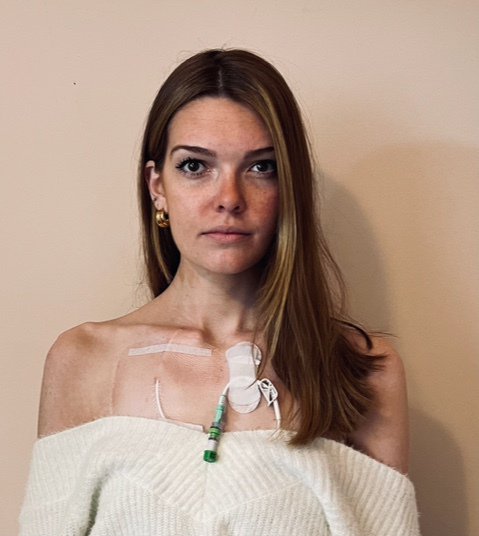
Jamie says that he sometimes feels invisible when people choose to ask his partner details about him, rather than addressing him directly.
‘No one gets up in the morning saying, “I’m going to p**s off as many disabled people as I can”, but they need more education,’ he adds.
The pair are not immune either and admit to sometimes having their own internalised ableism. Celia recently completed the London marathon and felt iffy about collecting a medal as she wasn’t running. Jamie quickly reminded her that doing 26 miles made her more than deserving, putting it directly: ‘Shut the f**k up and self-advocate.’
Last year, Jamie and Celia, who previously set up the UK’s first disability-focused policy unit to lobby the government, co-founded the business Disabled by Society ‘to transform disability exclusion into inclusion’. Their first Policy Paper heard from over 500 disabled people about their lived experiences, and now, it helps educate workplaces, charities, and community groups about ableism. They also have a combined following of 64k on LinkedIn, where they share helpful resources, and co-present the podcast Unlearning Ableism. Each episode they interview people about the realities of being disabled.
‘The conversation around ableism is often avoided because it’s uncomfortable, but we need to talk about it to make the conversations comfortable,’ explains Jamie.
‘We say the podcast is like listening to best friends having a drink in a bar. Celia can’t actually drink, and I only need one,’ he says, before adding that they like to talk about the ‘rhinos in the room’. (Rhinos have worse eyesight, so he feels more akin to them than elephants).
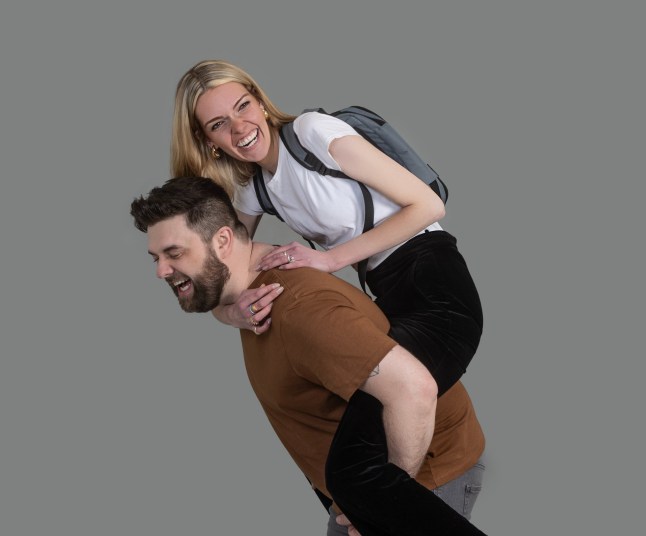
Celia continues: ‘No one was talking about sex and relationships as a disabled person, or the anger that you feel. We felt like we had nobody to talk about certain things with before we met each other. We want to be there for people who perhaps haven’t yet met their Jamie.’
Being so immersed in the sometimes heavy conversation, both by their lived experiences and choice of work, means the friends have strong opinions on what the future looks like for disabled people.
‘We’re seeing better representation, but in terms of our government and our systems, we can’t be where we need to be unless accessibility is mandated by law. We’re disabled by society because it’s not set up for us,’ Celia explains. ‘Right now, less than 2% of homes are built or designed accessibly, meaning, if you’re somebody in a wheelchair, you’re not likely to find a home in the UK for you. These barriers are everywhere.’
Celia and Jamie go on to explain that 96% of the top one million websites aren’t fully accessible. The pages are often not designed for screen reader users, and people with mobility impairments who rely on keyboard-based navigation to perform all functions are unable to easily operate them. Alarming statistics like this contribute to disabled people being twice as likely to be unemployed as people who aren’t disabled. Change starts at home so alongside every audio episode of Unlearning Ableism, they also publish the transcript for those unable to listen.
‘Everything is moving forward without us, and that’s the terrifying thing about being disabled at the moment,’ adds Celia, who believes that the solution lies in discussions about disability starting from a young age, so there’s a greater understanding of ableism, accessibility, and less fear around difficult conversations.
Scope Awards 2025
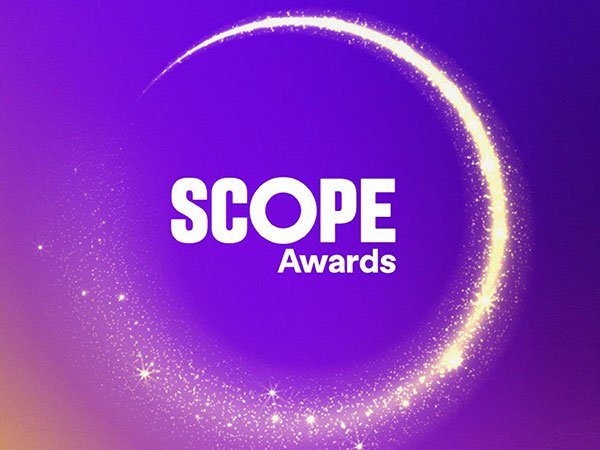
Metro is also the official media partner of 2025 Scope Awards that will take this week.
The ceremony will celebrate the work disabled people and organisations are doing to bring about important change.
Hosted by the BAFTA-nominated actor Adam Pearson, unsung heroes, amazing achievements and the incredible accolades of the disabled community are all being honoured at the Kia Oval.
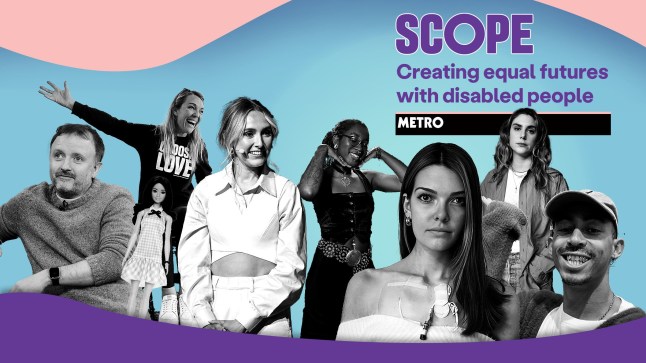
There are 38 nominees for the nine Scope Awards: Accessible Product, Celebrity Role Model, Community Group, Inclusive Workplace, Journalist, Marketing Campaign, Media Moment, Purple Pioneer and Social Media Influencer.
With such big ambitions to change the status quo, it’s no wonder she often worries about running out of time. ‘We’re never going to end discrimination, but what we can do is try and make it less common and make sure that the systems are in place to ensure that repercussions are faced.’
Jamie also has a personal reason for wanting change: ‘I have nephews who have the same eyesight condition as me.
‘I don’t want them to face half of what I have, because my mental health was terrible. I self-harmed, I was suicidal, I was depressed.’
While their joint project is inspiring, the pair admits they have a complicated relationship with the word as it’s not always used in a context they appreciate.
‘I’ve been told “Oh well done” for going to the shops. I’m hungover and going to the shop to buy ice lollies. That’s not inspiring,’ says Jamie with his trademark dry humour that Celia says makes her laugh until her cheeks hurt.
Striking a more serious tone, he adds: ‘Judge us for our actions, not what we did despite being disabled, but just what we did.’
They’re definitely being judged solely for their achievements at the upcoming Scope Awards, held to celebrate those who are working to end disability inequality, with the pair nominated in the Social Media Influencer category.
‘Our entire lives, we’ve been told that there wasn’t anything to look forward to and that we probably won’t amount to much. It feels like every day you are in a world that doesn’t want you there, so to get a thank you for advocating in the right way is so powerful. It feels incredible,’ says Celia.
Do you have a story you’d like to share? Get in touch by emailing Josie.Copson@metro.co.uk
Share your views in the comments below.